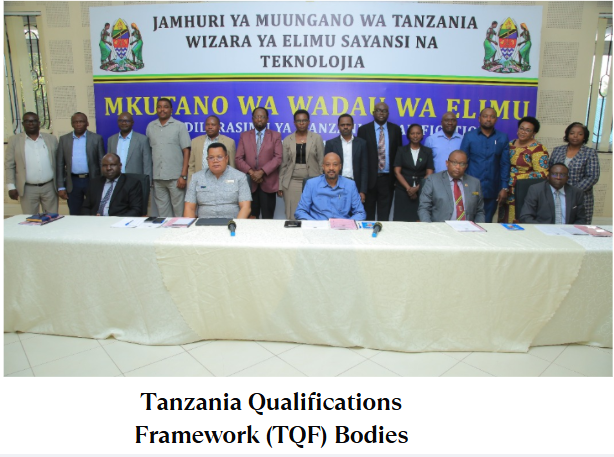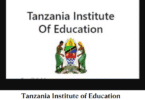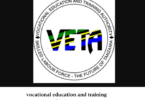The Tanzania Qualifications Framework (TQF) is a national system designed to organise, coordinate, and recognise all types of qualifications awarded in Tanzania. Its main goal is to provide a clear structure that links vocational, technical, and university education, allowing learners to progress smoothly from one level to the next.
TQF helps ensure that qualifications are of high quality, easy to understand, and recognized both within Tanzania and internationally. It also makes it possible for skills gained through informal or non-formal learning to be recognised officially.
Key Bodies Involved in TQF
Several important institutions are responsible for regulating and delivering education and training within the TQF system.
Vocational Education and Training Authority (VETA)
VETA focuses on the lower levels of the TQF, usually Levels 1 to 3. It provides training that equips learners with practical and artisan-level skills for direct employment or self-employment.
Examples of VETA courses:
- Welding and Fabrication
- Plumbing and Pipe Fitting
- Tailoring and Dressmaking
- Automotive Mechanics
- Electrical Installation
- Cookery and Catering
National Council for Technical and Vocational Education and Training (NACTVET)
NACTVET, formerly NACTE, oversees technical education at Levels 4 to 6 of the TQF. It ensures that technical institutions provide quality education in various professional fields.
Examples of NACTVET courses:
- Ordinary Diploma in Civil Engineering
- Ordinary Diploma in Nursing
- Diploma in Agriculture
- Diploma in Business Administration
- Diploma in ICT
Tanzania Commission for Universities (TCU)
TCU regulates university-level qualifications, ranging from Level 7 (Bachelor’s degree) to Level 10 (Doctorate). It ensures that universities provide high-quality academic programmes.
Examples of university courses under TCU:
- Bachelor of Science in Engineering
- Bachelor of Laws
- Bachelor of Education
- Master of Business Administration
- Doctor of Philosophy (PhD)
National Examinations Council of Tanzania (NECTA)
NECTA handles primary and secondary school examinations. These qualifications form the foundation for entry into technical or university education.
Professional Bodies
Several professional organisations are part of the TQF system because they regulate specific career qualifications. These include:
- National Board of Accountants and Auditors (NBAA)
- Engineers Registration Board (ERB)
- Medical Council of Tanganyika
- Nursing Council of Tanzania
These bodies set professional standards and examinations that align with TQF.
TQF Levels and Examples
| TQF Level | Qualification | Examples of Courses / Fields |
|---|---|---|
| 1 to 3 | Artisan and Trade Certificates | Masonry, Carpentry, Electrical Installation |
| 4 | Basic Technician Certificate | Basic Accounting, Basic ICT |
| 5 | Technician Certificate | Civil Engineering Technician, Clinical Medicine |
| 6 | Ordinary Diploma | Diploma in Agriculture, Diploma in Nursing |
| 7 | Bachelor’s Degree | Law, Education, Engineering |
| 8 | Postgraduate Diploma | Finance, Education Management |
| 9 | Master’s Degree | Public Health, Business Administration |
| 10 | Doctorate | PhD in various academic and research fields |
Why TQF Matters
- It helps students progress easily from one level of study to the next.
- It ensures that all qualifications meet national standards of quality.
- It allows Tanzanian qualifications to be recognised internationally.
- It values both formal and informal learning achievements.
The Tanzania Qualifications Framework plays a crucial role in uniting all parts of the education system into one clear and consistent structure. It gives Tanzanians better opportunities for lifelong learning and career development.




